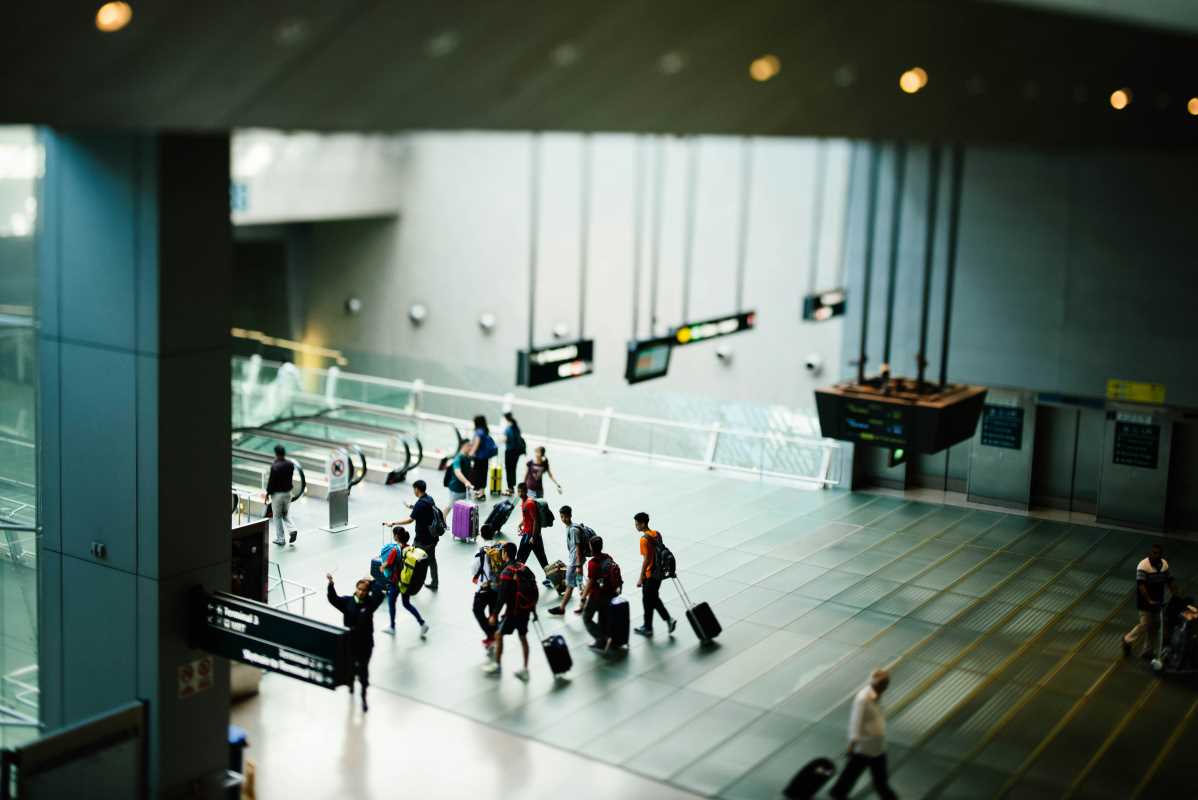Traveling to new cities is an exhilarating experience, filled with opportunities for adventure and discovery. However, ensuring your safety while exploring unfamiliar places should be your top priority. By taking a few precautionary measures, you can minimize risks and fully enjoy your travel experiences. Here are some essential tips for staying safe in unfamiliar cities.
Explore During Daylight Hours
One of the most effective ways to stay safe in an unfamiliar city is to explore during daylight hours. Daylight provides better visibility, making it easier to navigate the city, spot landmarks, and avoid potentially unsafe areas. Many cities tend to be safer during the day when there are more people around, and businesses are open.
During the day, you can explore tourist attractions, visit local markets, and take in the city's sights with greater confidence. If you're in a city known for its nightlife, plan your evening outings in well-lit, busy areas and always have a clear route back to your accommodation. Remember, it's easier to get lost or disoriented after dark, especially in places you're not familiar with.
Blend In with Locals
Blending in with the local population is an effective strategy for avoiding unwanted attention. Tourists can be easy targets for pickpockets, scammers, and other criminals, especially if they stand out. To avoid this, dress in a way that aligns with the local culture and fashion. Avoid wearing flashy clothing, expensive jewelry, or accessories that scream "tourist."
By blending in, you reduce the chances of being targeted for scams or theft. Additionally, observe how locals behave in certain situations, such as when using public transportation or navigating busy streets, and try to mimic their actions. This approach not only helps you stay safe but also enriches your travel experience by allowing you to immerse yourself more fully in the local culture.
Stay Alert and Aware of Your Surroundings
Maintaining situational awareness is crucial when you're in an unfamiliar environment. Always be mindful of your surroundings and stay alert to any potential dangers. This means keeping an eye on the people around you, being cautious in crowded places, and avoiding distractions like looking at your phone too frequently.
If something or someone makes you feel uncomfortable, trust your instincts and remove yourself from the situation. It's also wise to avoid dimly lit or isolated areas, particularly at night. Stick to well-trafficked streets and public spaces where there are other people around. Being vigilant doesn't mean being paranoid, but rather being prepared and aware, which can help you avoid potential dangers.
Research Transportation Options
Understanding how to navigate a new city is essential for staying safe. Before you arrive, research the available transportation options, such as buses, trains, and taxis. Familiarize yourself with the local transit routes, schedules, and fares, so you can move around the city confidently.
When using public transportation, keep your belongings secure and stay aware of your surroundings. If you're considering using taxis, identify reputable taxi services or ride-sharing apps to avoid scams. In some cities, unlicensed taxis can pose a risk, so it's important to know which services are safe to use. Planning your transportation in advance can help prevent getting lost or stranded, particularly in less familiar parts of the city.
Keep Important Documents Secure
Your important documents, such as your passport, identification, and travel insurance information, are essential for your safety and well-being while traveling. To protect these valuables, consider using a money belt or a secure travel wallet that can be worn discreetly under your clothing. Avoid carrying all your important documents in one place; instead, keep copies of your passport and other critical documents in a separate location, such as a locked suitcase or a hotel safe.
In addition, be mindful of where you store your documents while you're out exploring. Never leave them unattended or in easily accessible pockets. In case of theft or loss, having digital copies stored securely online can be a lifesaver, allowing you to access the necessary information quickly.
Utilize Technology for Safety
Technology can be a powerful tool for enhancing your safety while traveling. GPS apps like Google Maps can help you navigate unfamiliar cities and find your way back to your accommodation if you get lost. Many travel apps also provide offline maps, which can be extremely useful in areas with limited internet access.
Staying connected with friends and family through messaging apps can provide peace of mind, allowing you to share your location or call for help if needed. Additionally, consider storing emergency contact information and local emergency numbers in your phone for quick access. Some countries also have specific travel safety apps that provide alerts and information about potential dangers in the area.
Plan Ahead and Stay Informed
Preparation is key to staying safe while traveling. Before you head out, research your destination thoroughly. Understand the local customs, any areas to avoid, and the common scams that target tourists. Having this knowledge will help you make informed decisions and navigate the city more confidently.
Keep yourself informed about current events in the area, as situations can change rapidly. Subscribe to travel advisories or follow local news to stay updated on any safety concerns, such as political unrest, natural disasters, or public health issues.
Stay Connected and Share Your Plans
It's important to stay connected with someone who knows your travel itinerary. Whether it's a family member, friend, or travel buddy, make sure someone is aware of your plans and can check in with you regularly. Share details about where you're staying, your planned activities, and any changes to your schedule.
Having a reliable means of communication, such as a local SIM card or an international phone plan, ensures that you can reach out for help if needed. Regular check-ins with someone back home provide an extra layer of security, especially if you're traveling alone.
Trust Your Instincts
Finally, trust your instincts. If something feels off or makes you uncomfortable, don't hesitate to change your plans or remove yourself from the situation. Your intuition is a powerful tool, and listening to it can often prevent dangerous situations from escalating.
If you ever find yourself in an unfamiliar area that feels unsafe, seek help from local authorities, return to a more populated area, or find a reputable business where you can wait until you feel safe to continue. Being proactive and cautious can make all the difference in ensuring a safe and enjoyable trip.
Traveling to unfamiliar cities offers a unique opportunity for adventure and cultural exploration, but it also comes with challenges and risks. By following these safety tips—exploring during daylight, blending in with locals, staying alert, and utilizing technology—you can enjoy your travels with confidence and peace of mind. Remember that preparation and awareness are your best allies in staying safe while exploring new destinations.
(Image via DSR)
 (Image source: Inuvo / DSR)
(Image source: Inuvo / DSR) 





